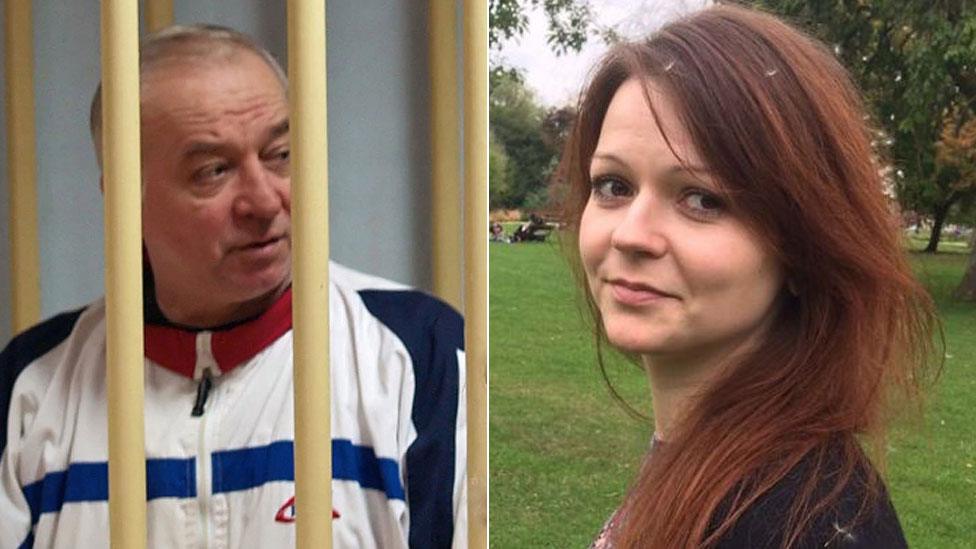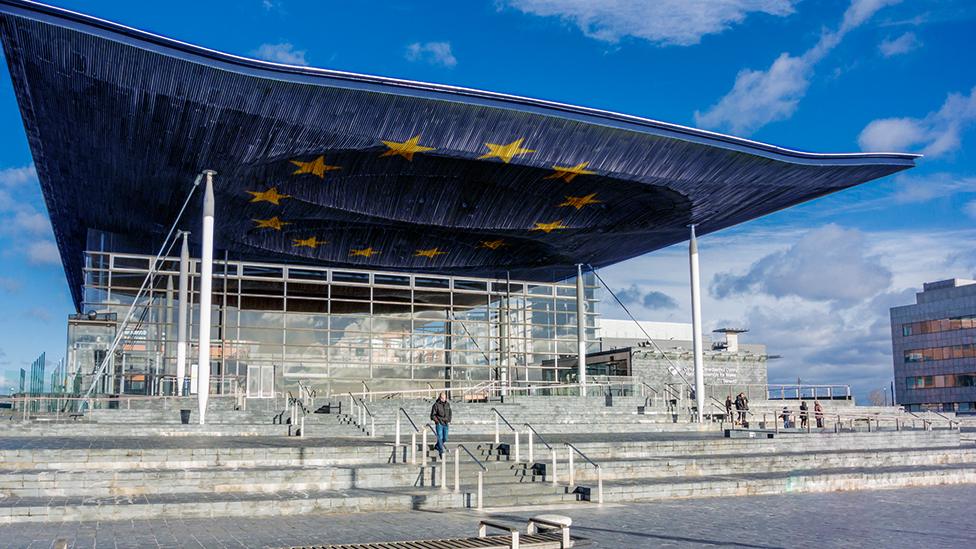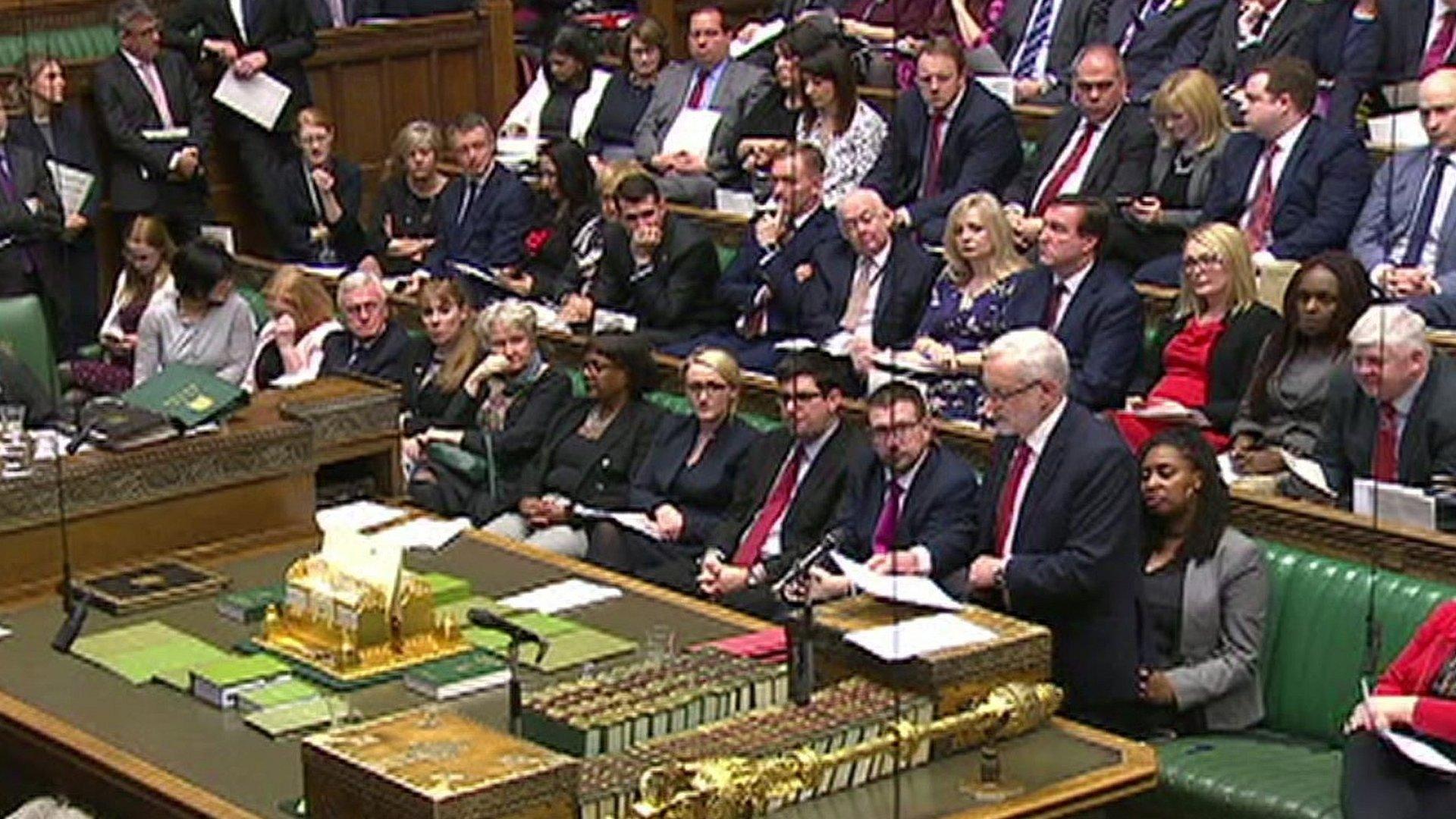Labour First Minister Carwyn Jones backs May on Russia row
- Published
Carwyn Jones backed Prime Minister Theresa May over her action against Russia
The Labour first minister of Wales has given Theresa May his full support over action she is taking after the poisoning of a former spy in Salisbury.
The prime minister announced the UK will expel 23 diplomats after Moscow refused to explain how a Russian-made nerve agent was used.
Carwyn Jones' support comes despite Labour leader Jeremy Corbyn's spokesman raising questions about Russia's guilt.
Russia denies being involved in the attempted murder of Sergei Skripal.
Speaking outside 10 Downing Street, after a meeting with Mrs May and Scottish First Minister Nicola Sturgeon, he said: "We met this afternoon of course in the shadow of the unjustifiable and appalling event in Salisbury recently.
"I expressed my full support to the prime minister for the robust and proportionate action she has taken.
"It is hugely important that where incidents like this take place that the right response is made to them, and that has been done."

Sergei Skripal, 66, and his daughter Yulia, 33, were found poisoned in Salisbury on 4 March
In the House of Commons on Wednesday Labour leader Mr Corbyn condemned the Salisbury incident as a "dreadful, appalling act" and called for multilateral action in response, saying it was a matter of "huge regret" that the UK's diplomatic network had been cut by 25% in the last five years.
Aberavon Labour MP and former head of the British Council in St Petersburg Stephen Kinnock told the BBC Jeremy Corbyn "didn't really strike the right tone" in his comments.
The joint ministerial committee (JMC) meeting in Downing Street was expected to be dominated by a continuing row over the EU Withdrawal Bill, which Ms Sturgeon and Mr Jones have claimed amounts to a "power-grab", giving powers in devolved areas currently wielded by the EU to Westminster.

The UK government has tabled amendments that would devolve many of those powers but hold back some temporarily - but this has not been enough for the two devolved governments.
Mr Jones said progress had been made but he was not yet in a position to recommend to the assembly it should give its consent to the withdrawal bill.
"I am hopeful that we will be in a position in the next few days - no more than a week or two I would say, as time is running out but we are not there yet."
The Welsh Government said Mr Jones also raised the issue of US steel tariffs, asking for the prime minister to support measures to protect the industry in Wales, including any indirect impact of tariffs.
"The first minister also pressed for positive decisions on the Swansea Bay Tidal Lagoon and the continuing refusal to devolve Air Passenger Duty," a statement from Welsh Government added.
A Downing Street spokesperson said: "Following on from discussions in the JMC, the first minister and the prime minister agreed that they should continue to work together to find an agreement on the amendment to Clause 11 in the EU Withdrawal Bill."
- Published14 March 2018

- Published14 March 2018
